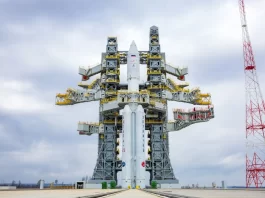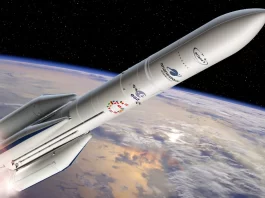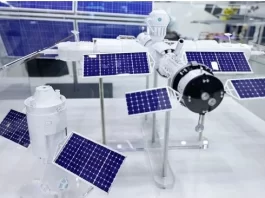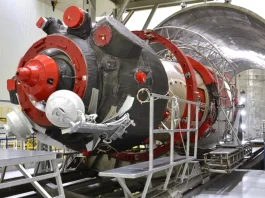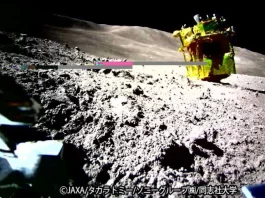The EUTELSAT 36D geostationary communications satellite, which Airbus built, was transported via Airbus BelugaST (A300-600ST) from Toulouse, France, to Sanford, Florida, USA. Its subsequent destination is the Kennedy Space Centre in Florida, where, later this month, it will be deployed into orbit atop a SpaceX Falcon 9. The A300-600-based BelugaST fleet, which is now entirely operational on the larger A330-200 platform-based BelugaXL, has made the expansion of outsized goods transport services worldwide.
EUTELSAT 36D, which has a planned lifetime of over 15 years and is built upon the most recent iteration of Eurostar Neo geostationary telecommunications satellites, will provide direct-to-home (DTH) television and government services across Africa, Europe, and eastern countries.
Airbus’ Head of Telecommunications & Navigation Systems, Philippe Pham, said EUTELSAT 36D is the 22nd geosatellite and will expand capacity in Africa and Eurasia.
The all-electric EUTELSAT 36D, which features 70 physical Ku-band transponders, will ensure the continued functionality of EUTELSAT 36 B’s primary legacy missions while also improving performance and coverage.
The fourth Eurostar Neo is currently in orbit. Eurostar Neo satellites integrate enhanced power and thermal control systems, increased payload capacity, and shortened production time and costs as components of a completely digitalized manufacturing process. Using Airbus’ EOR (Electric Orbit Raising) capability, EUTELSAT 36D integrates 18 kW of electric power with an approximate five-metric-tonne reduction in launch mass. This further solidifies Airbus’ status as the global frontrunner in electric propulsion.
The Eurostar Neo family of Airbus telecommunications satellites was built using a cutting-edge platform and technologies, guided by the European Space Agency (ESA), the Centre National d’Etudes Spatiales (CNES), and the UK Space Agency (UKSA), among others.
A Beluga transport aircraft is transporting an Airbus geostationary satellite to the Kennedy Space Centre in Florida for the third time this year. Prior missions have comprised HOTBIRD 13G on October 17, 2022, and Inmarsat 6-F2 on January 30, 2023.

